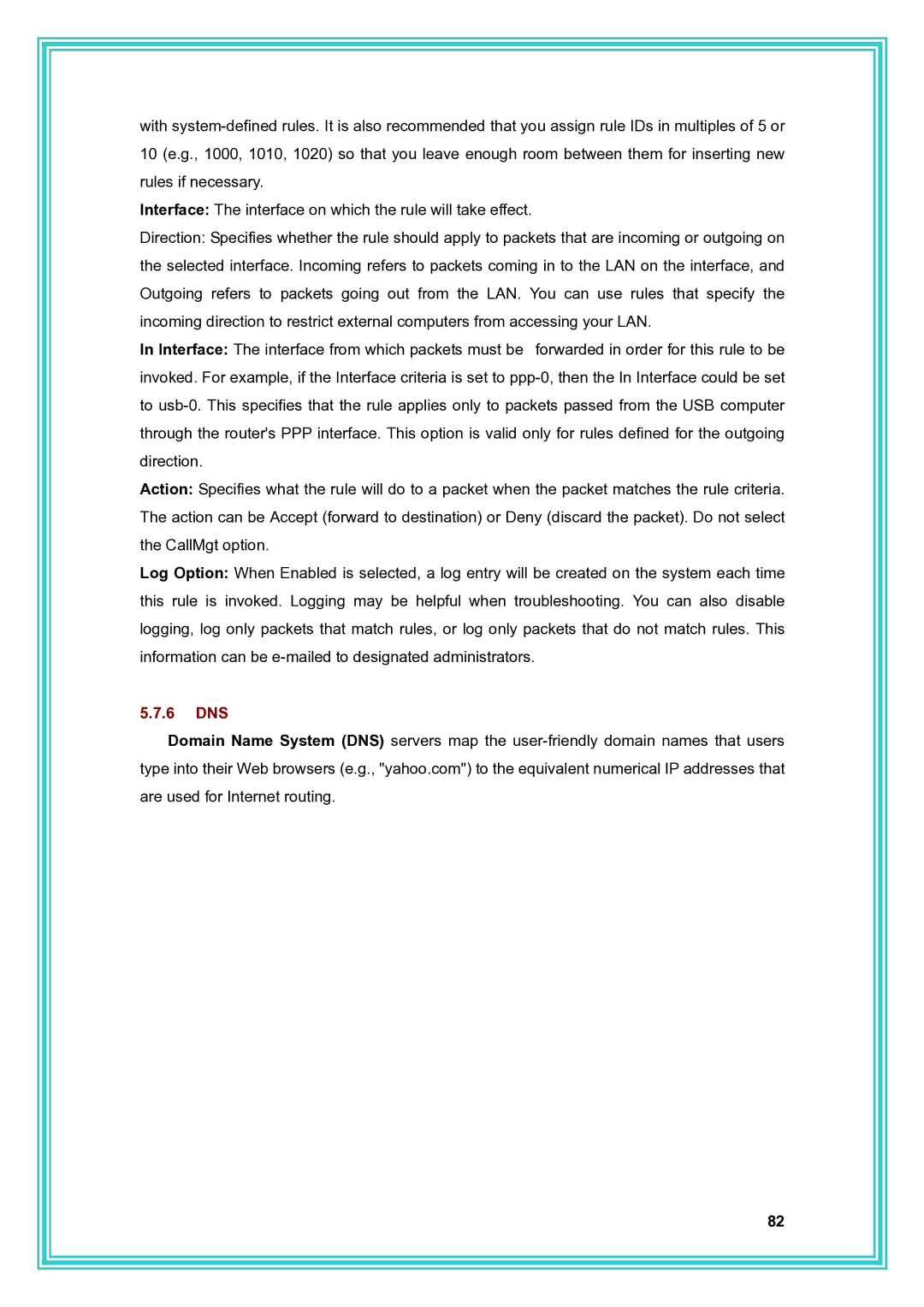
with
Interface: The interface on which the rule will take effect.
Direction: Specifies whether the rule should apply to packets that are incoming or outgoing on the selected interface. Incoming refers to packets coming in to the LAN on the interface, and Outgoing refers to packets going out from the LAN. You can use rules that specify the incoming direction to restrict external computers from accessing your LAN.
In Interface: The interface from which packets must be forwarded in order for this rule to be invoked. For example, if the Interface criteria is set to
Action: Specifies what the rule will do to a packet when the packet matches the rule criteria. The action can be Accept (forward to destination) or Deny (discard the packet). Do not select the CallMgt option.
Log Option: When Enabled is selected, a log entry will be created on the system each time this rule is invoked. Logging may be helpful when troubleshooting. You can also disable logging, log only packets that match rules, or log only packets that do not match rules. This information can be
5.7.6DNS
Domain Name System (DNS) servers map the
82
